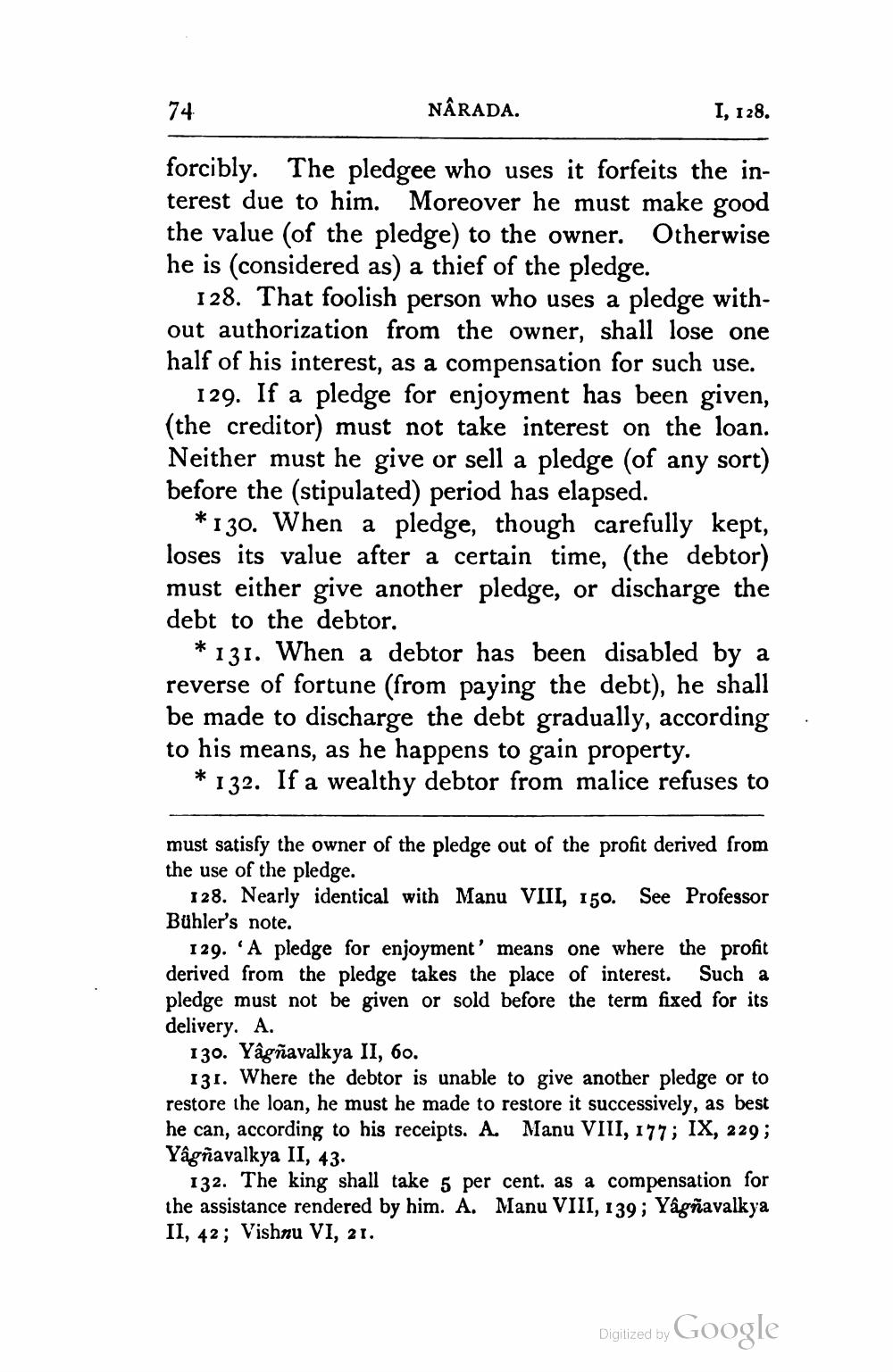________________
74
NÂRADA.
I, 128.
forcibly. The pledgee who uses it forfeits the interest due to him. Moreover he must make good the value (of the pledge) to the owner. Otherwise he is (considered as) a thief of the pledge.
128. That foolish person who uses a pledge without authorization from the owner, shall lose one half of his interest, as a compensation for such use.
129. If a pledge for enjoyment has been given, (the creditor) must not take interest on the loan. Neither must he give or sell a pledge (of any sort) before the (stipulated) period has elapsed.
*130. When a pledge, though carefully kept, loses its value after a certain time, (the debtor) must either give another pledge, or discharge the debt to the debtor.
*131. When a debtor has been disabled by a reverse of fortune (from paying the debt), he shall be made to discharge the debt gradually, according to his means, as he happens to gain property.
* 132. If a wealthy debtor from malice refuses to
must satisfy the owner of the pledge out of the profit derived from the use of the pledge.
128. Nearly identical with Manu VIII, 150. See Professor Bühler's note.
129. 'A pledge for enjoyment' means one where the profit derived from the pledge takes the place of interest. Such a pledge must not be given or sold before the term fixed for its delivery. A.
130. Yâgñavalkya II, 60.
131. Where the debtor is unable to give another pledge or to restore the loan, he must he made to restore it successively, as best he can, according to his receipts. A. Manu VIII, 177; IX, 229; Yâgñavalkya II, 43.
132. The king shall take 5 per cent. as a compensation for the assistance rendered by him. A. Manu VIII, 139; Yagñavalkya II, 42; Vishnu VI, 21.
Digitized by Google




